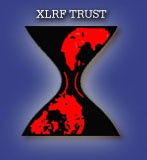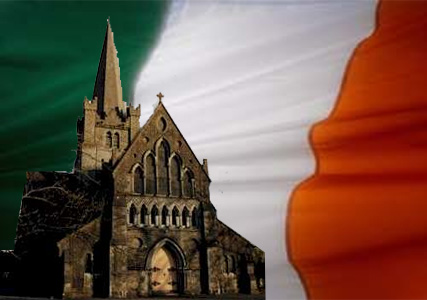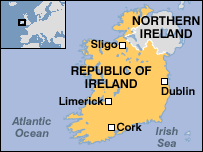 |
||
& believes firmly in its 4E Philosophy -
& pursues the same each day by building GLOBAL CITIZENS
|
|||||||||||||||||||||||||
|
Although the history of Ireland has seen troubled times, its people have always been associated with a love of music, storytelling and a bit of craic, as a good time with friends is known. Since joining the European Community in 1973, the Republic of Ireland has accelerated its growth from a largely agricultural society into a prosperous, modern, technologically-advanced Celtic Tiger economy. Tourism too continues to flourish. For centuries British dominion in Ireland gave rise to unrest which erupted into violence with the Easter Rising of 1916 when independence was proclaimed. The rising was crushed and many of its leaders executed but the campaign carried on. A booming economy transformed Dublin in the 1990s In the early 1920s, 26 counties of Ireland gained independence from London following negotiations which led to partition. The island's other six counties, part of the province of Ulster, remained in the United Kingdom of Great Britain and Northern Ireland. Partition was followed by a year of civil war. Relations between Dublin and London remained strained for many years afterwards. Northern Ireland saw decades of violent conflict between those campaigning for a united Ireland and those wishing to stay in the United Kingdom. In an unprecedented and concerted effort to resolve the situation, the Irish and UK governments worked closely together in negotiations which led to the Good Friday Agreement on the future of Northern Ireland in 1998. Ireland's economy began to grow rapidly in the 1990s, fuelled by foreign investment. This attracted a wave of incomers to a country where, traditionally, mass emigration had been the norm. Ireland is the birthplace of many famous English-language writers, among them W.B. Yeats, James Joyce, Samuel Beckett, Oscar Wilde and George Bernard Shaw. |
|||||||||||||||||||||||||
|
FACTS
|
|||||||||||||||||||||||||
|
|||||||||||||||||||||||||
|
Ireland has one of the best education systems in the world according to the 2004 IMD World Competitiveness Report. It has close links to industry and is characterised by creativity, flexibility, agility, pragmatism and informality. Irish are European - part of the EU family of nations and cultures and of the increasingly integrated European Education Area. Ireland is an English-speaking country with close cultural, economic and educational links with the English-speaking world, especially with the UK - our next door neighbour and with the USA, where Irish Americans form a high proportion of the population. Irish people have a great love of conversation and have a genuine interest in other people. This friendliness and hospitality for which the Irish people are renowned contributes to the ease with which overseas students adapt to the way of life and in particular, student life in Ireland. Although Irish do have our own distinctive Celtic language and culture, English is the predominant language spoken in Ireland today. The Irish use it so effectively that it has been said that better English is spoken in Ireland than anywhere else in the world! Every year almost 200,000 students of all ages and from all over the world come to study in Ireland to benefit from the highest quality English Language training in schools throughout the country. Ireland enjoys a temperate climate influenced by the relatively warm waters of the Gulf Stream in whose path the island lies. During the winter months temperatures rarely drop below freezing and snow is uncommon. The coldest and wettest months are December, January and February, which have mean temperatures of between 4°C and 7°C . July and August are the warmest months with mean temperatures of between 14°C and 16°C , rarely rising above 20°C . A friendly and hospitable country, Ireland has a very special welcome for visitors from North America with whom it has a tradition of strong links. Ireland is an increasingly popular destination for students from all over the world. The friendliness and hospitality for which Irish people are renowned, contribute to the ease with which overseas students adapt to the way of life and in particular, student life. Having developed from being a predominantly agricultural economy in the 1950s Ireland is now a thoroughly modern nation with well developed manufacturing and international services sectors and has the highest economic growth rate in the E.U. - hence the title 'The Celtic Tiger'. The educated workforce produced in Ireland by the education system has been a key factor in attracting international investment to the country and in the growth of the modern technological industries which have helped make Ireland one of the fastest growing economies in the world. |
|||||||||||||||||||||||||



